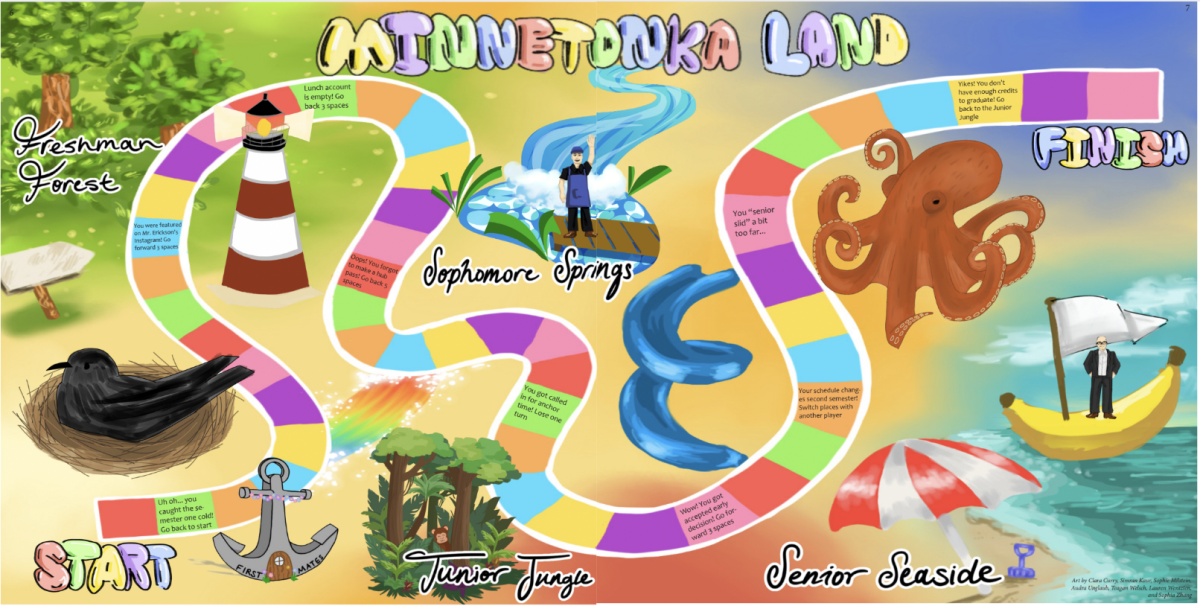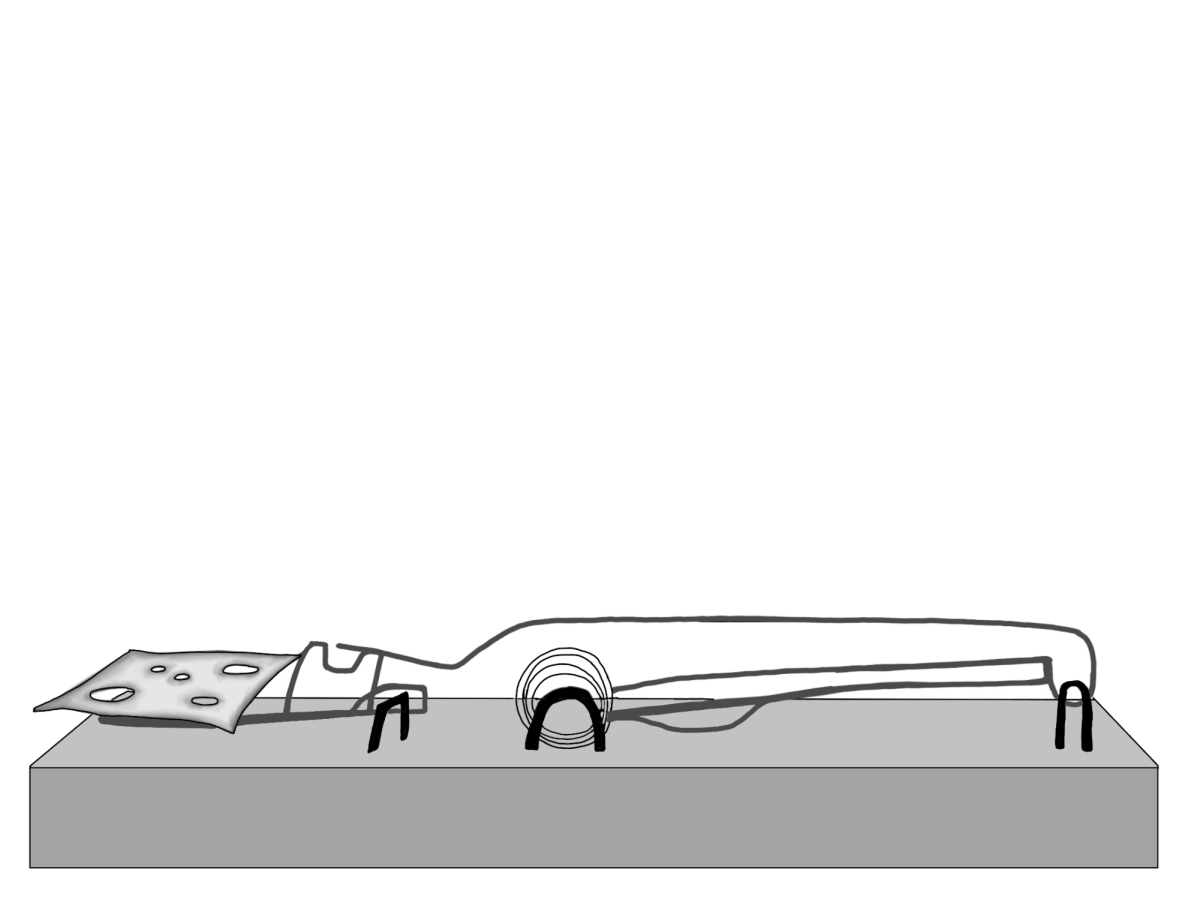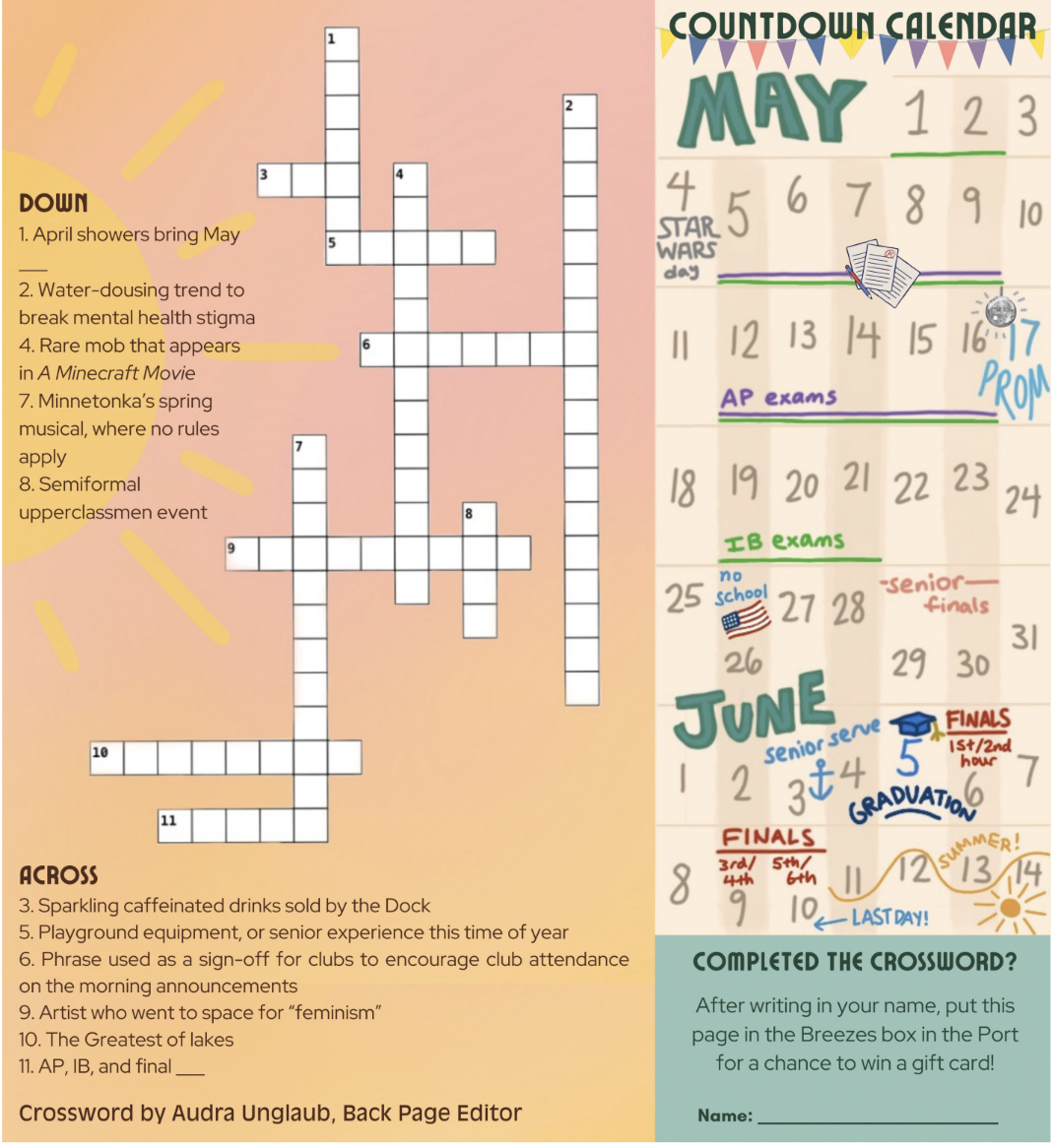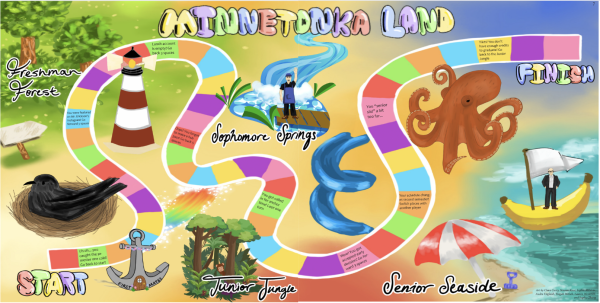Are we learning the right type of math?

Recently, I found myself struggling to answer a simple question: why do I need to take difficult math classes? At first blush, this question may seem to be an unhelpful complaint only asked to express discontent. But, as I continued to contemplate it, I began to sympathize. Technically, a simple answer does exist, but it fails to address the problem faced by many.
Depending on your definition, the solution can be as easy as “you don’t need to take advanced classes”. At Minnetonka, a student could fulfill all graduation requirements without ever taking precalculus, but, for a vast majority, this is not the case. Ignoring the fact that colleges incentivize taking as rigorous a curriculum as possible, at Minnetonka, students are encouraged to apply themselves academically. Most are set on a track that, unless a student were to repeat or drop into a lower level course, they will eventually find themselves taking a higher level class.
While encouraging students to take challenging courses is not a bad system, I do find the current selection to be flawed. It’s generally accepted that “simple” mathematics (including arithmetic and basic algebra) are helpful in all aspects of life while extremely “complex” mathematics loses this everyday practicality. So why isn’t there a “practical math” course? This class could teach students how to do their taxes, calculate a loan or other helpful skills. Much of this would overlap with the Personal Finance curriculum (which is currently offered at Minnetonka). The key difference would be that this class could apply for a math credit (therefore allowing a greater number of students to avoid classes they deem useless). If done correctly, this could offer a rigorous and helpful option for students who don’t plan to go into a mathematical career. Instead of teaching derivatives and limits (things that many people have no use for), it could offer an education that only a lucky few ever get.
For me, someone interested in engineering, calculus makes sense. However, for many others, it doesn’t. Obviously, the solution isn’t as simple as it seems. The logistics behind creating a new class (especially when it shares so many characteristics of an existing one) would be very complex. Nevertheless, if it could be done, giving an option for those who feel that math does nothing but waste their time would help greatly.





























